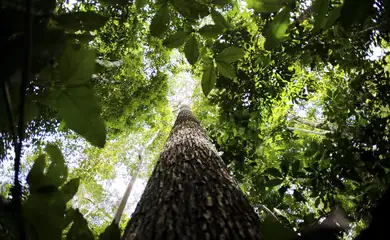Brazil unveils zero methane plan at OECD meeting

Brazil’s Environment Minister Joaquim Leite restated Brazil’s commitment with concrete actions to reduce carbon emissions and with the development of a new green economy. Brazil plays a significant role in helping the world create an emission-neutral green economy by 2050, the minister declared.

The statement was made Thursday (Mar. 31), during a ministerial meeting of the environmental committee of the Organization for Economic Cooperation and Development (OECD).
The improvement of air quality, the reduction of plastic pollution, and the issue of climate change—the main topics of the OECD ministerial meeting—are among the government’s priorities, Leite went on to say. “Our big cities have low levels of pollution, because for years we’ve had a robust program for biofuels, like ethanol, an example for the world, in addition to a well-structured air pollution control program for motor vehicles since 1990,” he said.
As for climate change, the minister talked about the National Program for the Reduction of Methane Emissions, launched last week, with a focus on organic waste from the sectors of pork, poultry, dairy, sugar cane, and landfills. “The program can slash 36 percent of methane emissions in Brazil,” he pointed out. Leite also mentioned the National Regulated Emissions Market, which has created a regulated market for carbon credit exports from various sources.
At the OECD meeting, the minister also announced the regulation of offshore wind energy. “Studies by the Ministry of the Environment, in partnership with the European Union, point to a scenario of enormous potential—approximately 700 gigawatts. That’s high economic attractiveness,” he said.
Leite also said studies have begun for the development of the National Green Hydrogen Plan, aimed at turning Brazil into a major clean energy exporter.





